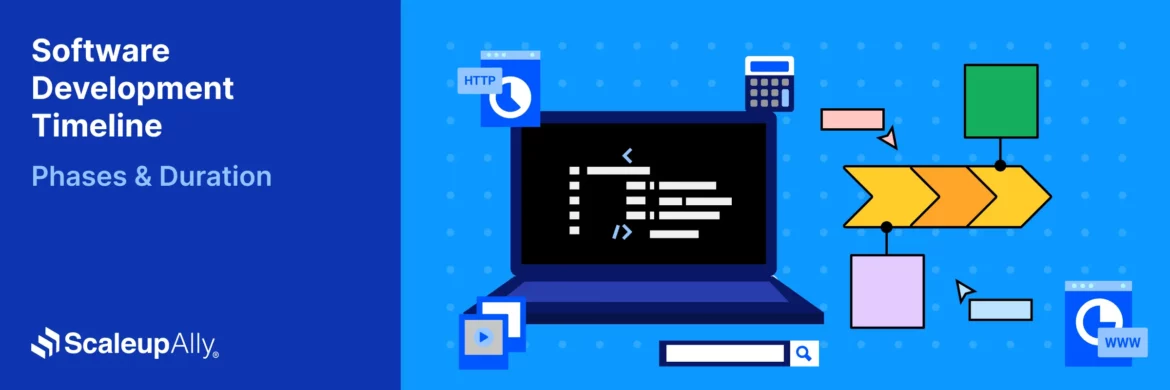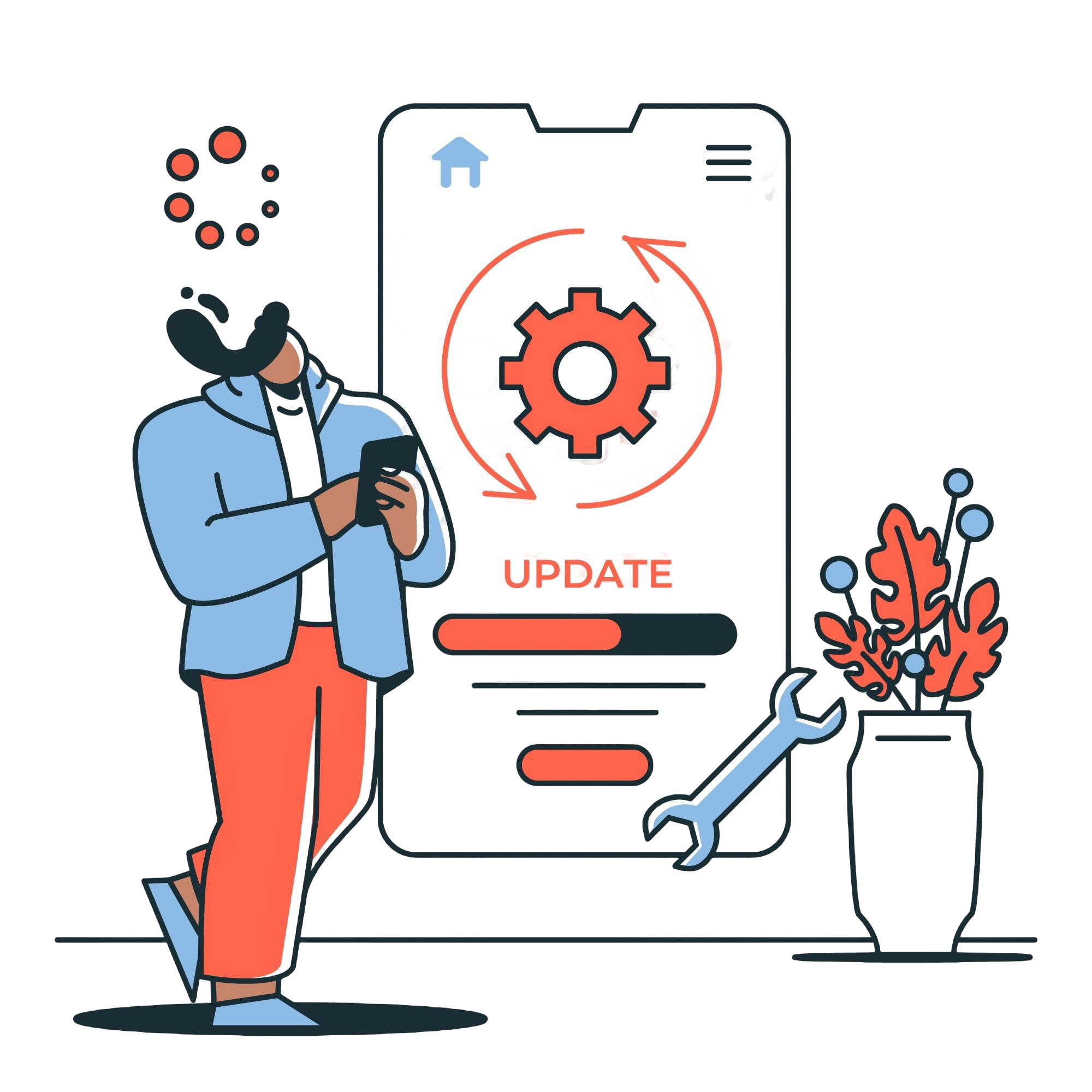
Power Apps vs Traditional App Development – A Detailed Guide
Suprabhat Sen | February 22, 2024 , 11 min read
Table Of Content
Software development has become much more accessible and easier in recent times. It wasn’t always like this – in the past, only computer ‘wizards’ had access to it, and it was quite difficult for people to understand programming languages due to the counter-intuitive nature of computers.
However, nowadays, we have lean development environments that make software development easy for both amateurs and professionals, and the time required to create applications has been significantly reduced.
These development environments are often provided as services and help eliminate the need to start from scratch. Developers can instead use various functions, libraries, and pre-made components in an environment where many difficulties have been mitigated.
This approach, called low-code development, requires minimal coding from the programmer, and it offers significant advantages over traditional software development.
But let’s start right from the beginning…
Key Takeaways
- Power Apps and traditional app development differ when it comes to development time, customization options, and required technical expertise.
- Power Apps offer faster development compared to traditional methods.
- Power Apps is generally more cost-effective due to lower development costs.
- Both traditional app development and Power Apps offer robust security features.
- Power Apps is ideal for simple, quick apps, while traditional development is better suited for complex, highly customized apps.
What is Power Apps?
- What is Power Apps?
- What is Traditional App Development?
- Advantages of Power Apps
- Drawbacks of Power Apps
- Advantages of Traditional App Development
- Drawbacks of Traditional App Development
- Difference Between Power Apps vs Traditional App Development
- When to Choose Power Apps?
- When to Choose Traditional App Development?
- Conclusion
- Frequently Asked Questions (FAQs)
- Similar Comparison Articles Around PowerApps
Power Apps is a platform developed by Microsoft that enables users to create custom business applications using low-code and high-productivity techniques easily. With Power Apps, users can connect their data sources such as Excel, SharePoint, SQL Server, and many others to automate tasks and streamline business processes.
This eliminates the need for extensive coding knowledge and puts the power of app development in the hands of everyone, regardless of their technical expertise.
What is Traditional App Development?
Traditional app development refers to creating applications using conventional methods that typically involve writing code from scratch. In traditional app development, developers use programming languages, such as Java, C#, Python, or Swift, to build applications for specific platforms, such as mobile, web, or desktop.
Java development services, in particular, are often sought after for their robustness and platform independence, making Java a popular choice for building scalable and secure applications.
Advantages of Power Apps
Power Apps offers several advantages, making it a compelling choice for building custom business applications.
Some of the key benefits of using Power Apps include:
1. Low-Code Development
Power Apps allows users to create applications with minimal coding using a visual drag-and-drop interface. This makes it easy for users with varying technical expertise to build apps quickly and efficiently.
2. Rapid App Development
With Power Apps, users can quickly build and deploy apps, allowing organizations to respond rapidly to changing business needs and market conditions. This can reduce development time and costs compared to traditional app development methods.
Also Read: How Much Does it Cost to Build a Power App?
3. Integration with Microsoft 365
Power Apps integrates seamlessly with Microsoft 365, allowing users to access and use data from tools like Excel, SharePoint, and Outlook in their apps. This makes it easy to build apps that leverage existing data and workflows.
Drawbacks of Power Apps
While Power Apps offers many advantages, it also has some drawbacks that users should consider. Some of the key drawbacks of Power Apps include:
1. Limited Customization
While Power Apps allows for some customization, users may find it limiting compared to traditional coding methods. Customization options may not always meet the specific needs of more complex or unique applications.
2. Complexity for Advanced Functionality
While Power Apps is designed to be user-friendly, building apps with more advanced functionality may require a deeper understanding of the platform and its capabilities. Users may need to invest time in learning how to use Power Apps effectively for complex scenarios.
3. Dependency on Microsoft Ecosystem
Power Apps is tightly integrated with the Microsoft ecosystem, meaning users may be limited in their choice of data sources and services. Integrating with non-Microsoft services may require additional effort and custom development.
Advantages of Traditional App Development
While often more time-consuming and complex than low-code platforms like Power Apps, traditional app development offers several advantages that may make it the preferred choice for certain projects.
1. High Level of Customization
Traditional app development allows developers to have complete control over the application’s design, functionality, and performance. This level of customization is often necessary for complex or specialized applications that require specific features or integrations.
2. Access to Advanced Features
Traditional app development allows developers to leverage advanced features and capabilities of programming languages and development frameworks. This can include complex algorithms, advanced data processing, and integration with various external services and APIs.
3. Optimized Performance
Traditional app development allows developers to optimize the application’s performance for specific platforms and devices. This can result in faster and more efficient apps, especially for resource-intensive tasks or applications that require real-time data processing.
Drawbacks of Traditional App Development
While offering a high level of customization and control, traditional app development also has several drawbacks that users should know, some of which are:
1. Higher Development Costs
Traditional app development can be more expensive than low-code platforms like Power Apps, as it requires more time and resources to develop custom solutions from scratch. Costs can include developer salaries, infrastructure costs, and ongoing maintenance expenses.
2. Time-Consuming Development Process
Traditional app development typically takes longer than low-code platforms, as developers must write code from scratch and thoroughly test the application. This can result in longer development cycles and delays in final product delivery.
3. Complexity and Technical Expertise Required
Traditional app development requires a high level of technical expertise, as developers need to have a deep understanding of programming languages, development frameworks, and best practices. This can make it challenging for organizations with limited technical resources to develop custom applications.
Difference Between Power Apps vs Traditional App Development
While both Power Apps and Traditional App Development have advantages and drawbacks, they differ significantly in terms of development time, customization options, and required technical expertise.
The comparison table below examines the key differences between Power Apps and traditional app development that will help you choose the best according to your business needs:
| Aspect | Power App | Traditional App Development |
| Development Speed | It is faster, offering a low-code environment where apps can be built quickly with minimal coding. | It is slower, as it involves writing code from scratch, which can be time-consuming. |
| Cost | Lower, as it requires fewer resources and less developer time than traditional app development. | Higher, as developing custom solutions from scratch requires more time and resources. |
| Security | Robust security features, including data encryption, access controls, and compliance certifications. | Requires developers to implement security best practices, which can be challenging. |
| Complexity | It is less complex, and providing a visual drag-and-drop interface simplifies app development. | It is more complex, requiring a deep understanding of programming languages and development frameworks. |
| Flexibility | More limited flexibility compared to traditional app development, as customization options may be limited. | Offers greater flexibility in terms of development tools, languages, and frameworks. |
When to Choose Power Apps?
Power Apps is a great choice in several scenarios, especially when you need to quickly develop and deploy apps without extensive coding or development resources. It’s ideal when your app requirements are relatively simple and you don’t need highly customized or specialized features. For more complex solutions, partnering with a Power Apps development company can help you design and implement applications tailored to your unique business needs.
If you use Microsoft 365 tools like Excel, SharePoint, and Teams, Power Apps offers easy integration of data and functionality from these tools into your apps. This makes it a convenient choice for organizations already using Microsoft 365.
Cost-effectiveness is another key factor. If you have a limited budget for app development, Power Apps provides a cost-effective solution compared to traditional development methods.
Power Apps is a strong contender for mobile app development, especially mobile-first or mobile-only apps. It allows you to develop mobile apps that work seamlessly on various devices quickly.
When to Choose Traditional App Development?
Traditional app development is a better choice in several scenarios, especially when your app requirements are highly complex and you need extensive customization and specialized features that are not easily achievable with low-code platforms like Power Apps.
If you require full control over your application’s design, architecture, and functionality, traditional app development may be the way to go, as it offers more flexibility and customization options than low-code platforms.
Additionally, if your app needs to leverage specific platform features or technologies not supported by low-code platforms, traditional app development may be necessary.
If you are developing large-scale applications that require extensive scalability and customization, traditional app development may be more efficient, as it offers greater control over the development process.
Conclusion
The decision between Power Apps and Traditional app development depends on whether Power Apps can meet the business’s app objectives. You can make an informed decision by evaluating the pros and cons of each choice. Explore and research the potential app development option you are considering. Most importantly, prioritize quality and stay committed to your app’s vision.
Frequently Asked Questions (FAQs)
Q: When should I choose traditional app development over low-code platforms?
You should choose traditional app development when your app requirements are highly complex and require extensive customization and specialized features that are not easily achievable with low-code platforms. Traditional app development also offers more control over your application’s design, architecture, and functionality.
Q: What programming languages are used in traditional app development?
The programming languages used in traditional app development depend on the platform and technology stack chosen for the project. Common languages include Java, C#, Python, Swift, and JavaScript.
Q: How long does it take to develop an app using traditional method?
The time it takes to develop a traditional app depends on various factors, including the app’s complexity, the development team’s size, and the availability of resources. Generally, traditional app development projects take longer than low-code projects due to the need to write code from scratch.
Similar Comparison Articles Around PowerApps
Related Blogs

Top 20 Emerging Technologies of 2026
Discover the top 20 emerging technologies of 2026. Explore which innovations are driving change across healthcare, finance, manufacturing, and other crucial industries.
ScaleupAlly Team
Dec 16 ,
9 min read

Online Shopping App Development Cost in UAE | Pricing & Factors Explained
Understand UAE online shopping app development costs in 2025 with pricing ranges, influencing factors, hidden fees, timeframes, and expert savings tips.
Suprabhat Sen
Nov 29 ,
13 min read

Software Development Timeline: Phases, Duration & Estimation Guide
Understand the software development timeline with phase durations, key factors, hidden delays, and practical methods to estimate project time.
Suprabhat Sen
Nov 29 ,
16 min read



